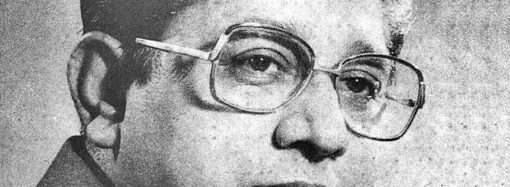– Nandita Koshal, Research Associate, IIHEd, OP Jindal Global University
Education is a benchmark for country’s social development, economic growth, political prowess, cultural assimilation and technological advancements. It also sets the foundation for the development of individual and society. According to recent studies, Indian education system has failed to impart skills and knowledge requisite among students for a gainful employment. In order to address the issue of employability, we first need to define the word employability and what employable skills are? The Confederation of British Industries has defined employability skills as ‘A set of attributes, skills and knowledge that all labour market participants should possess to ensure they have the capability of being effective in the workplace to the benefit of themselves, their employer and the wider economy’.
While, Fugate Kinicki & Ashforth’s has defined employability (the most cited definition of employability) as a ‘psychosocial construct that embodies individual characteristics which fosters adaptive cognition behavior, and enhances the individual-work interface. The OCR (Oxford Cambridge and RSA) guide to employability has defined, employability skills as ‘knowledge, personal qualities, attributes, and behaviors that you need to get work, stay in work and do your job well.’ On the basis of these definitions we can infer that employability is a function of knowledge, skills, individual dispositions, innate abilities, interests, self-development and career adaptability.
It is equally important to verify what are these ‘skills and attributes’ that employers look for in the workforce. The OCR in its report on guide to employability has listed down the skills that employers look for in the prospective employees based on surveys from various agencies. These include spoken and written communication, teamwork, analysis, investigation, initiative-taking ability. It also includes self-motivation, planning, organizing, and time management. Additionally, non-spoken communication like body language, listening, motivating, and supporting colleagues and receptive to criticism are also considered essential.
The larger question is whether the education system of our country equips students with these requisite skills to perform well in their jobs. Is education making any value addition to the life of the students? Is education guiding students to channelize their innate abilities and translate them into attributes valued by employers? But, the truth is that in our country higher education just acts as a ‘signal’ to the labour market that the student from the ‘branded and reputed’ institute is ready for the job.
There can be no denying the fact that schools and Higher education institutes (HEIs) form the basis of academic foundation for students. The academic institutions through their curriculum and critical pedagogies impart the basic, introductory and advanced knowledge of a discipline to students. However, a lot of times there is a gap between the theories taught at HEIs and their practical applications in the job market. Due to the tradition of rote learning and learning confined to the classroom, most of the students are not able to apply their knowledge in real situations. This knowledge and application asymmetry leads to a gap between demands and expectations of employers, leading to a large number of students joining the pool of unemployed youth.
The rate of unemployment is rising in India. According to the data published by Centre for Monitoring Indian Economy (CMIE), the unemployment rate in India has risen to 7.2 per cent till February 2019. Similarly, Centre for Sustainable Employment at the Azim Premji University’s ‘State of Working in India’ report has pegged the figure of unemployment to 5% with highest rate of unemployment being amongst the ‘higher educated’ students at 16%. One of the major reasons of unemployment could be the inability of the economy to generate jobs. However, the rise in the rate of ‘higher educated youth’ also indicates the mismatch between the demand and supply of the required talent. According to India Skill Report 2019, 47% of the students are found to be employable highlighting the fact that majority of educated youth that India is generating are not employable.
The thrust of education should be on transforming the unemployable youth into a job ready worker. This could be done by continuously updating and evolving the curriculum to make it relevant to the demands of the market. All the disciplines should give equal weightage to theoretical and practical aspects. The faculty should follow innovative teaching methodology that goes beyond the regular ‘lecture mode of teaching’. The discussions should be made more interactive. Students should be encouraged to think critically and engaged in analytical reasoning. The focus should be on problem solving and coming up with implementable solutions. This kind of experiential learning can be promoted through case-study based learning and industry-based projects.
A large part of the training and acquisition of technical skills are acquired during on job training. However, the knowledge of technical tools, machine learning tools, softwares that are widely used in the market are helpful to boost the employability of the student. Therefore, it is important that HEIs invest sufficiently in imparting knowledge of such tools amongst students. Additionally, vocational courses and professional development training should be offered at colleges that provide students experience of an actual workplace. In the age of Artificial Intelligence and Industry 4.0, the role of education will acquire special significance. The onus will be on universities and HEIs to equip the students with set of skills and knowledge that will remain relevant in the age of technology.
As reported by International Monetary Fund and World Economic Forum in their reports, a large proportion of people are going to lose their jobs to technology. Most of the conventional and mundane jobs will be automated. It would be the jobs requiring attributes of ‘creativity’, ‘communication’, ‘critical thinking’ and ‘entrepreneurship’ that would be able to survive the onslaught of technology. The ability to think creatively, critically, and courageously is going to be the most valued quality of an employee in coming times. The current HEIs as well as the universities of the future would be required to develop critical pedagogies and promote ‘critical thinking’ in order for students to remain employable in the age of A.I.
In addition to this, education apart from being an agency of shaping professional skills act as talent acquisition firms. It is because of this reason; certain institutions are favoured by employers over others. These reputed institutions by lending their ‘brand names’ signal to job market that their students are more employable. Therefore, higher education does contribute in increasing the employability of the students. From the above the discussion, we can conclude that Indian education system is promoting employable skills only to a limited extent. There is skill gap in the job market and Indian education system should take concrete steps to fill the gap. Simultaneously, it is important to recognise that role of education is much more than just generation and development of a skilled workforce.


















Leave a Comment
Your email address will not be published. Required fields are marked with *